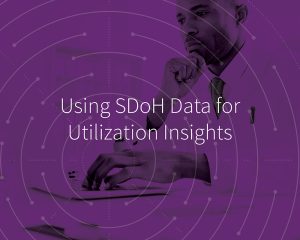The future of Accountable Care Organizations (ACOs) looks to play out like a game of Russian roulette—place your bets now to see who will win. With new payment and care delivery models, ACOs have challenged the status quo in healthcare, specifically around population health models. But where are the stakes highest?
ACOs come in all shapes and sizes, yet they share one commonality: The need to adapt in a new era of downside financial risk.
It’s not only about generating shared savings—it’s also about avoiding financial loss and expanding access to care. ACOs that survive and thrive in the era of new and changing government rulings will be those that intervene as early as possible to keep at-risk patients healthy and out of high-cost care settings.
But how can ACOs improve?
They need to look beyond clinical data and pull from external data sources, when necessary, to understand why certain patients drive the bulk of healthcare costs and negative outcomes. Identifying these at-risk populations from a clinical perspective is only part of the equation.
The next—and perhaps most critical step—is to identify the root cause of the risk and take proactive steps to mitigate it.
- Why do certain patients with obesity have poorer outcomes?
- Why are certain patients with heart disease frequently readmitted to the hospital
- Why do certain patients with diabetes frequently visit the ED?
When it comes to understanding why patients are at risk, genetics and current health status provide limited insights. Social determinants of health (SDOH), the economic and social conditions that influence individual and group differences in health status, are actually most important.
Understand the Potential of SDOH
SDOH data doesn’t replace the value of medical data—it serves as a supplemental data source to paint a clearer picture of health risk so clinical and social services can intervene immediately. What is also critical is looking at how those combined factors contribute to outcomes and readmissions risk.
SDOH data enables ACOs to further segment at-risk populations into smaller subgroups with similar needs. This is more advantageous than using single disease-focused segments that fail to address the underlying cause of a patient’s problem.
To ensure success under value-based payment models, ACOs must look beyond clinical data and dig more deeply into SDOH data that continues to drive the majority of health outcomes. SDOH data has the potential to revolutionize preventive care and the ability for ACOs to intervene as early in the patient care journey as possible.
Those at the forefront of data and analytics are set to reap the most from the game. Learn more about social determinants of health.





